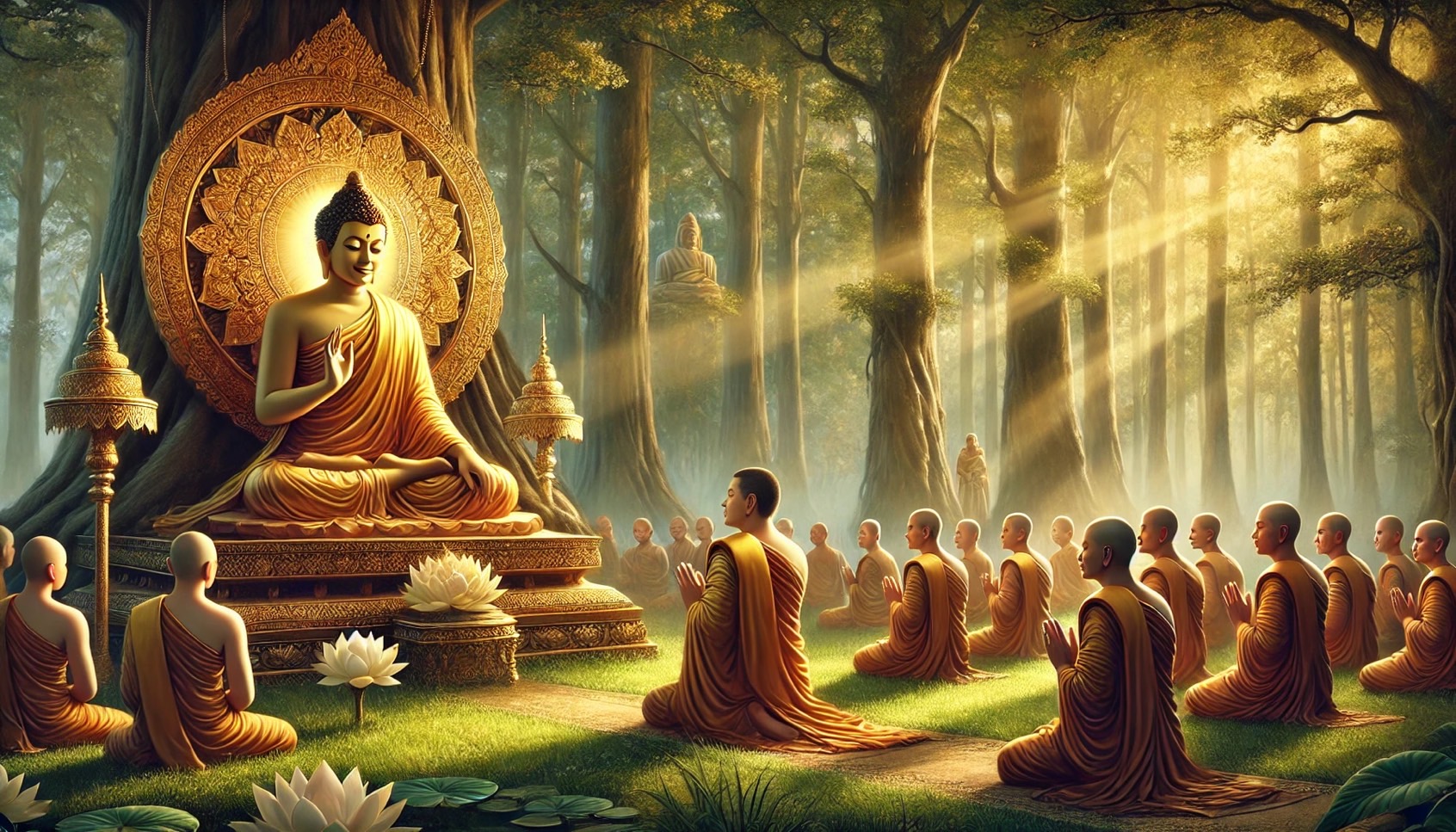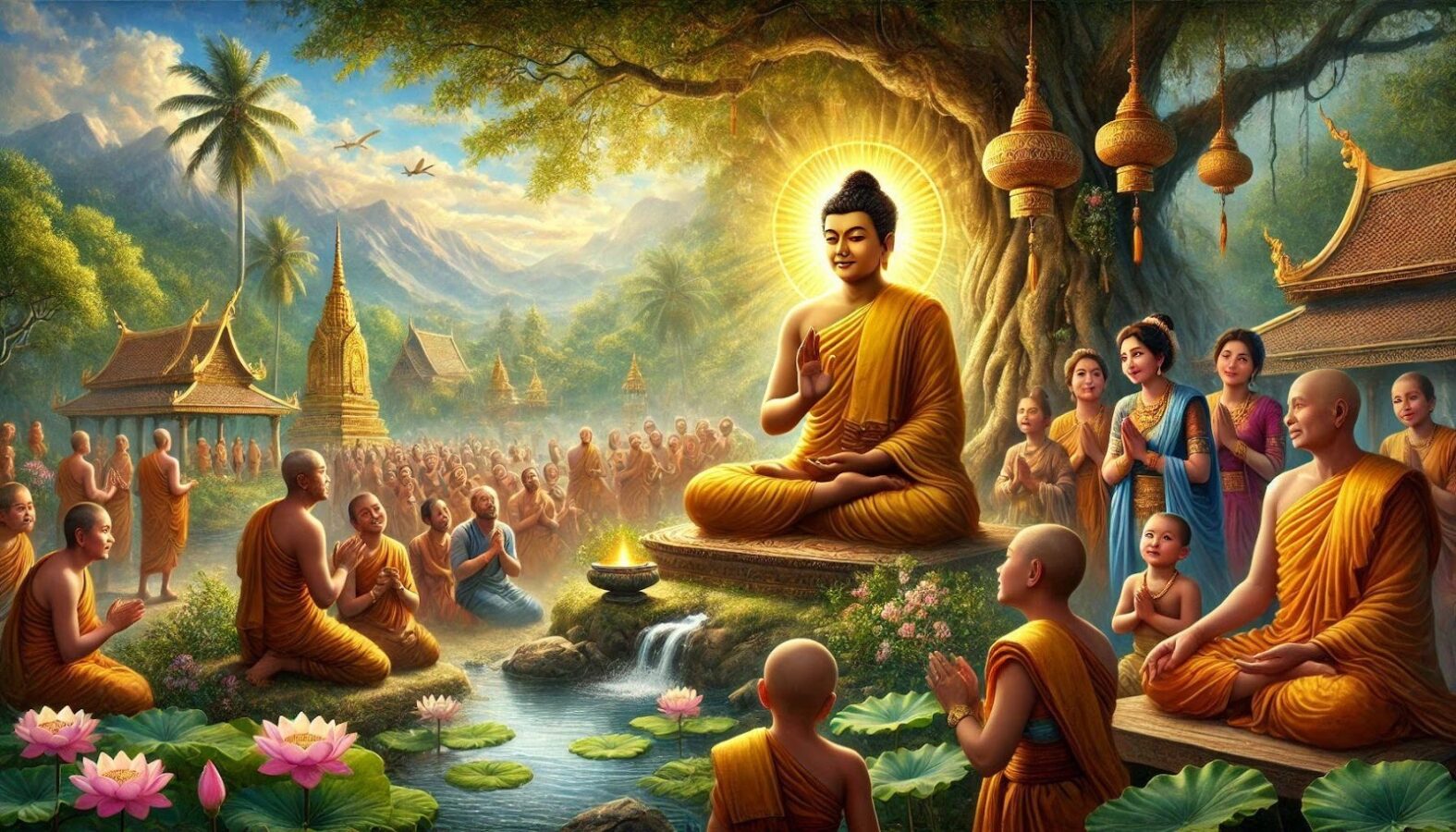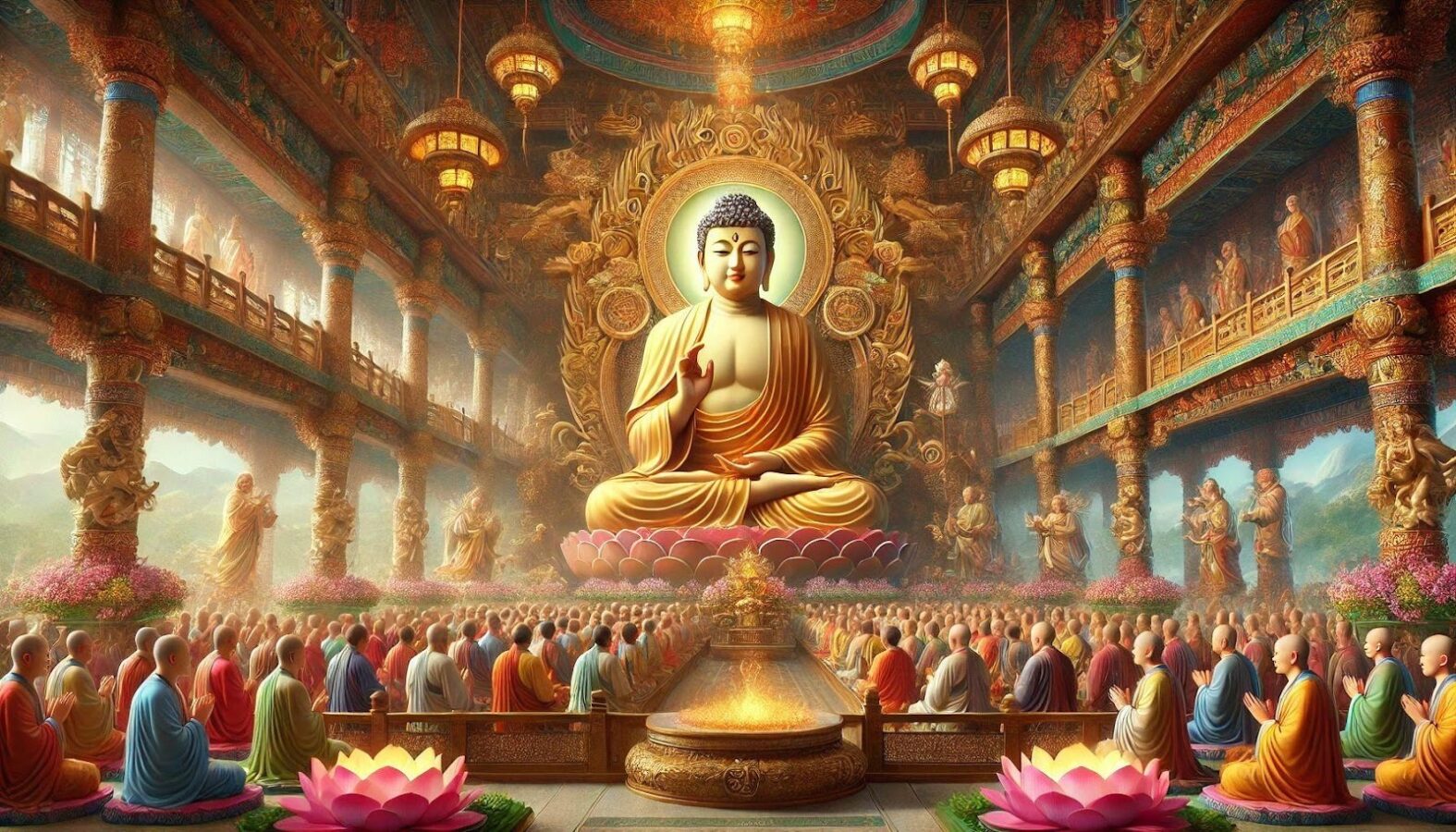
Date: 06/08/2024 06/09/2024
Location: Star Lake Meditation Center
Teacher: Otto Huang
Dharma Talk
“The Dharma itself should be relinquished; how much more so the non-Dharma of sensual pleasures.” — Misconception of the monk Alittha.
Once, the Buddha visited his hometown of Kapilavastu and stayed in the Nyagrodha Park to the south of the city.
That day, the Buddha’s cousin Mahanama came to pay homage and asked the Buddha, “World-Honored One! I have been practicing the Dharma for quite some time and deeply understand the teachings you imparted: greed, hatred, and ignorance are impurities of the mind and should be completely eradicated. However, sometimes these afflictions still arise in my heart, and I can’t fully uproot them. May I know what causes this?”
“Mahanama! You still find pleasure in the sensual joys arising from the senses of sight, hearing, smell, taste, and touch, which is why greed, hatred, and ignorance arise. Once you sever the attachment to these sensual pleasures, you won’t even desire the hedonistic life of a householder anymore.
However, Mahanama! Even if a holy disciple could accurately perceive with right wisdom that ‘sensual pleasures of the five senses have little joy, much suffering, much despair, and are fraught with many dangers,’ as long as one has not experienced the joy and the tranquil happiness associated with renunciation or a state even more serene than this joy, one would still crave the sensual pleasures.”
The Buddha then elaborately explained to Mahanama the five types of sensory pleasures and the dangers they bring, like he said, “Due to desire; rooted in desire, thus nations quarrel against nations; tribes against tribes; families against families; and even mothers with sons, fathers with sons, brothers, and sisters cannot avoid disputes, leading to warfare and brutal slaughter.”
On another occasion, the Buddha arrived at Shravasti, the capital of the Kosala kingdom, and stayed in the Jetavana Park in the southern suburbs.
At that time, in the Buddhist monastic community, there was a monk who used to live by hunting hawks before his ordination, named Alittha. He often told people:
“From what I understand of the World-Honored One’s teachings, although he said that sexual desire is an obstacle to spiritual practice, those who indulge in it are unimpeded.”
The monks tried to correct his mistaken view, but to no avail. Hence, they reported the matter to the Buddha for him to address.
The Buddha summoned Alittha and confronted him face to face, confirming the rumors. Then the Buddha reprimanded him, saying:
“Alittha! Where did you hear me say that? You fool! It was not I who said that but you. You fool! When the monks were correcting you, you should have recognized your error and amended your ways. Let me ask the other monks how they understood it.”
Then the Buddha asked the other monks, “Did you also hear me say that those who indulge in sexual pleasure are unobstructed?”
“No,” replied the other monks.
“What then did you hear me say?”
“We heard the World-Honored One say: ‘Desire is obstructive; the World-Honored One said that the sensual pleasures of the five senses have little joy, much suffering, much despair, and many dangers. Moreover, the World-Honored One likened these sensual pleasures to bones, small pieces of meat, torches, flameless pits, venomous snakes, dreams, borrowed items, tree fruits, a butcher’s block and knife, and the small gains on the blade of a knife.’ That’s how the World-Honored One taught us.”
“Good! Good! You all remember my teachings well. But this foolish Alittha twists my teachings to his liking, not only maligning me but also harming himself, causing him to suffer for a long time. You fool! Do you realize your mistake?”
After hearing the Buddha’s reproach, Alittha the monk was unable to argue and could only bow his head in contemplation.
Then, the Buddha gave the simile of catching a snake, illustrating the harm of misinterpreting his teachings and encouraging everyone to understand and remember the Buddha’s words correctly. The Buddha said:
“For instance, someone wanting to catch a snake might hastily grab it by the tail or middle, only to be struck back fiercely by the snake, risking injury. On the contrary, a person skilled in catching snakes would use a forked stick to pin down the snake’s neck, thus avoiding injury regardless of how the snake lashes out.”
Buddha also said:
“I often tell you about the simile of the raft, which you should let go rather than cling to. For instance, if someone needs to cross a very deep and wide river without a bridge or boat, they must gather wood and grass from the bank to construct a simple raft. After safely crossing the river with the raft, one might think the raft is very useful and hesitate to leave it behind, even carrying it along. But what benefit would that bring to them now? Therefore, everyone should understand from the simile of the raft: even the attachment to good Dharma should be relinquished, let alone the clinging to non-Dharma!”

